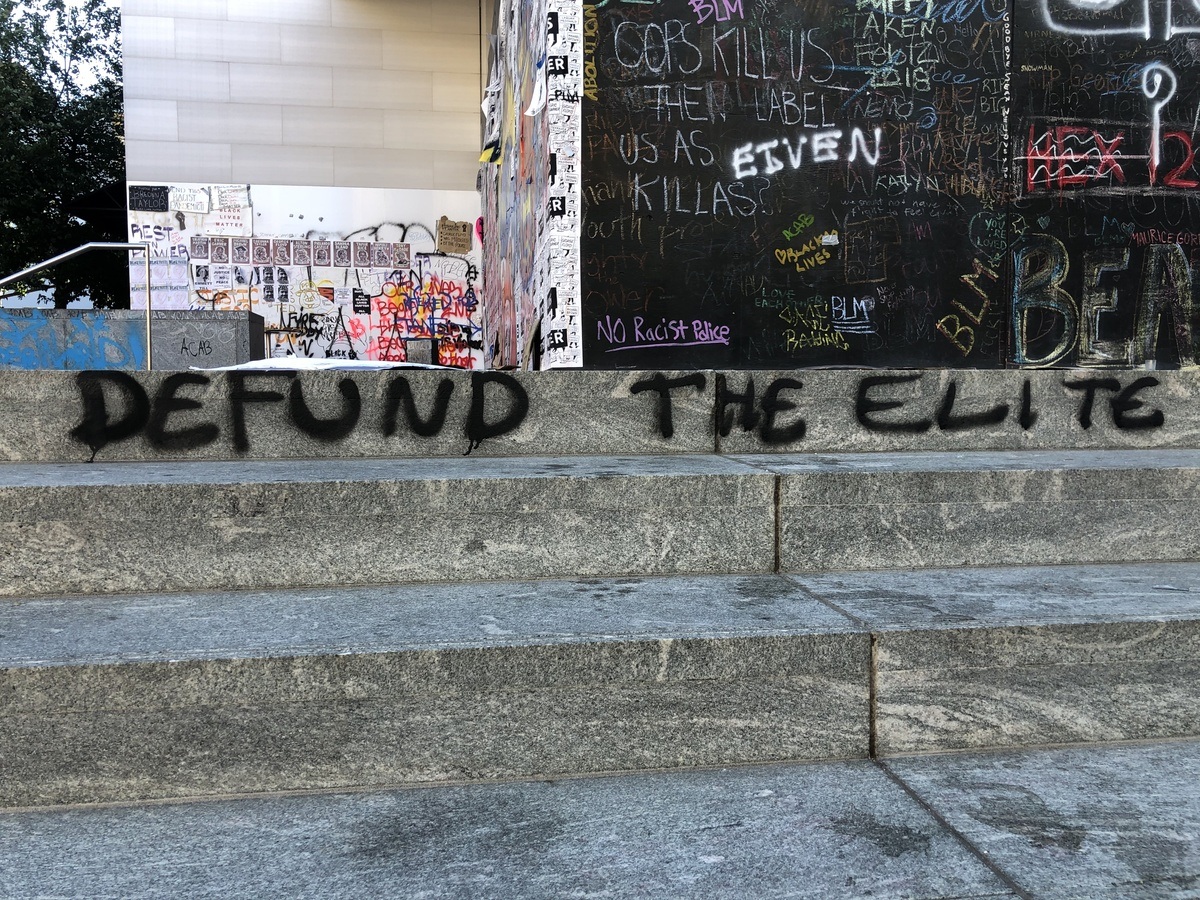
Photograph by Nathaniel St. Clair
A White House that muses openly about not counting votes. A Senate rushing to cement in place a fiercely conservative Supreme Court. We have plenty of reasons these days to despair for our democracy. The Commission on Presidential Debates has just added another.
This independent blue-ribbon panel has produced every presidential debate since 1988. The 2020 debate series will launch this coming Tuesday, and the Commission has now announced the six topics that will each get 15 minutes at the initial square-off between Donald Trump and Joe Biden.
Those six topics, as selected by Chris Wallace, the first debate’s moderator: the Trump and Biden records, the Supreme Court, Covid-19, the economy, race and violence in our cities, and the integrity of the election.
This imprecise jumble of broad categories and specific issues makes little logical sense. Are we talking here about “race” or “racism”? Can a question about the “economy” come up in the 15 minutes devoted to “the Trump and Biden records”? And how can a topic list for a presidential debate in 2020 — the year West Coast skies turned red — not make any reference to climate change?
The Commission claims to be looking “forward to bringing high-quality, educational debates to the electorate” in 2020. Tuesday’s debate will bring us nothing of the sort. We will get instead an exercise that reveals the emptiness of our contemporary democratic dialogue. We simply do not have the capacity to seriously confront, let alone solve, the real challenges we as a society face. We seem structured to fail.
And that brings us to another massive concern absent from Tuesday’s topic list: our staggering maldistribution of income and wealth. Tuesday’s debate will almost certainly come and go without any serious discussion of how economically unequal we have become as a nation. In these days of despair over the state of our democracy, we desperately need that discussion. A deeply unequal society can never be a vibrant, healthy democracy.
At its most basic, after all, the ideal of democracy rests on the notion that we all come out ahead when people can get together and freely discuss and debate the common problems they face. But in deeply unequal societies people don’t share common problems. They live in separate worlds.
In one world, the world of the vast majority, people struggle day in and day out for economic security. In the other world, the universe of the awesomely affluent, deep pockets face an entirely different set of challenges — and their wealth ensures that their challenges get priority attention.
We end up with a broken democracy that afflicts the afflicted and comforts the comfortable, that lets working people die in Louisiana’s Cancer Alley and cuts taxes for the chemical industry movers and shakers whose plants keep spewing chemical killers. We end up with a society that lets the fortunes of billionaires soar while truly essential workers can never be sure whether this will be the day they catch Covid. We end up with legions of desperate people that demagogues can demonize.
The despair over all this can get overwhelming. So let’s escape for a moment into a daydream. Let’s imagine we had a Commission on Presidential Debates that did want to foster a “high-quality, educational” dialogue on questions that really matter, questions, for instance, about the distribution of the wealth our society creates. Would the American people welcome those questions?
You bet they would. The latest indication comes from polling that Data for Progress has been conducting this past summer in 11 states, among them key Election 2020 battlegrounds like Arizona, North Carolina, and Iowa. Overall, the poll found that 61 percent of voters in these states would be “more likely” to vote for Senate candidates who support placing a 2 percent wealth tax “on the assets of individuals with a net worth over $50 million.”
Even 51 percent of Republican voters in these states say they would be more likely to support candidates so inclined. Only 33 percent of Republicans say that such support would sour them on a candidate.
Meanwhile, adds the new Data for Progress poll, less than 27 percent of voters want the existing tax system to remain in place. Americans, in other words, would be eager to see candidates debate whether we ought to be shearing our grand private fortunes down to democratic size.
The grand pooh-bahs who run the Commission on Presidential Debates have no particular interest in fostering a debate of this sort. We should. The future of our democracy may well hang on the questions we get our body politic to start asking.